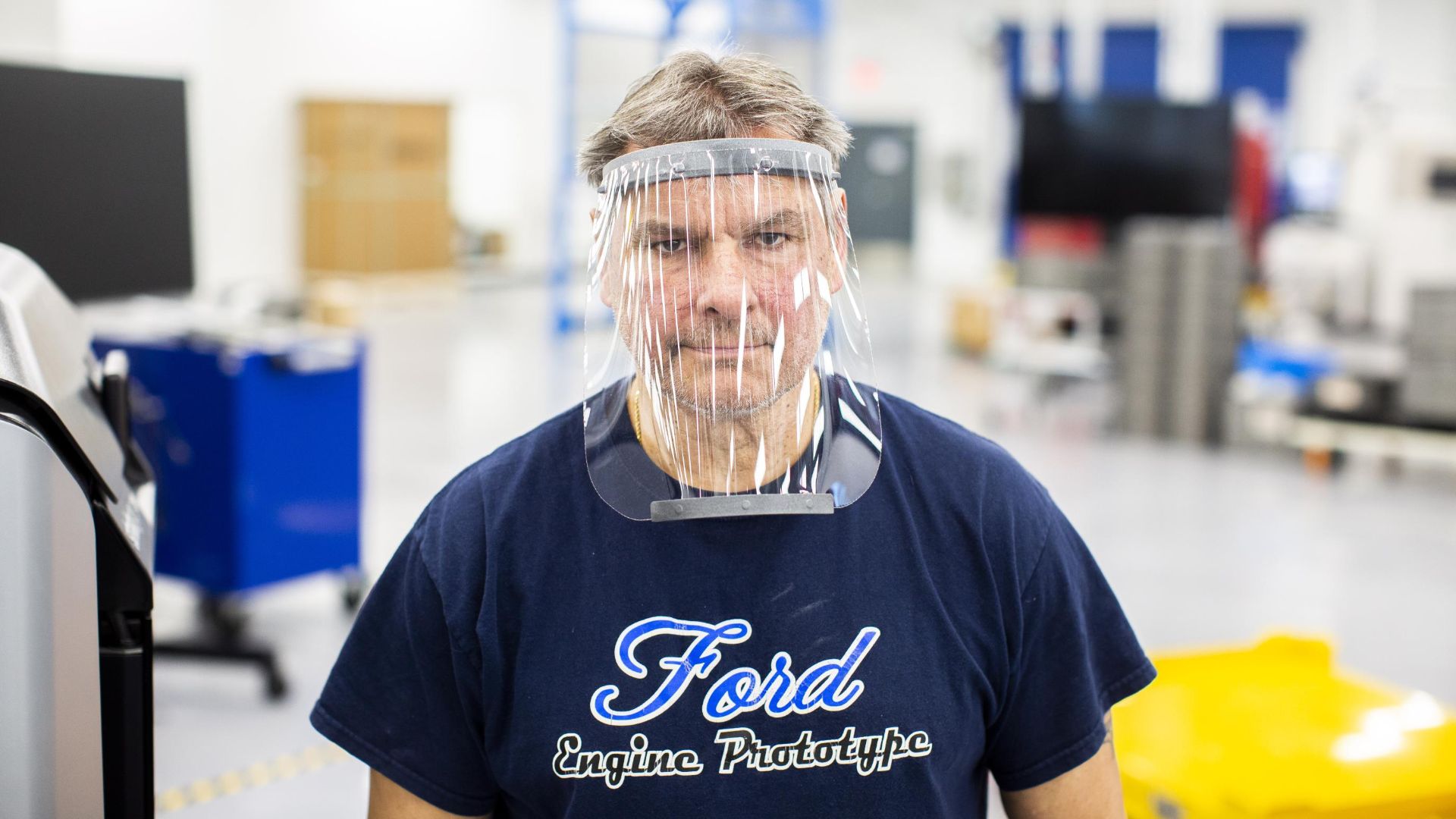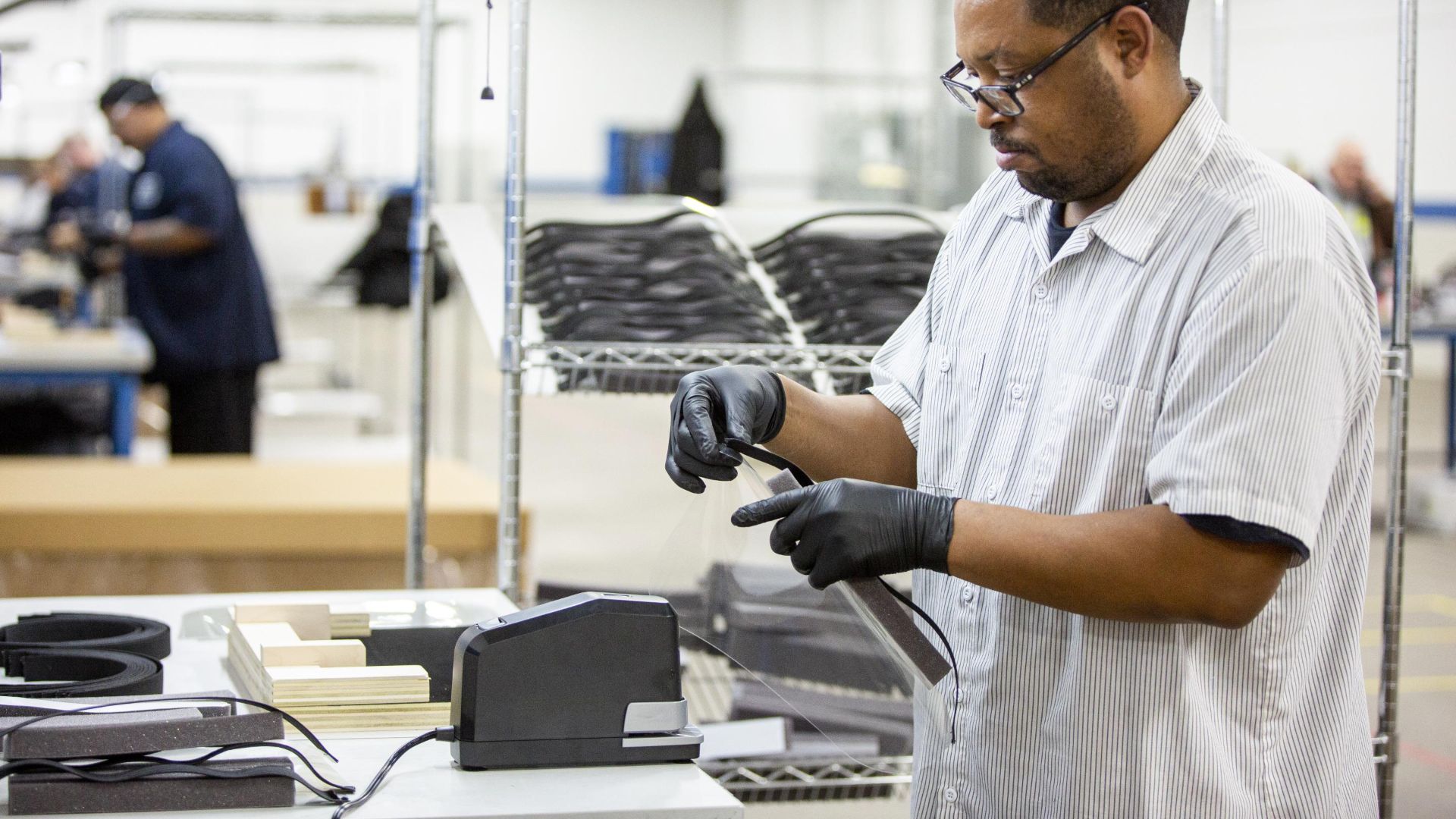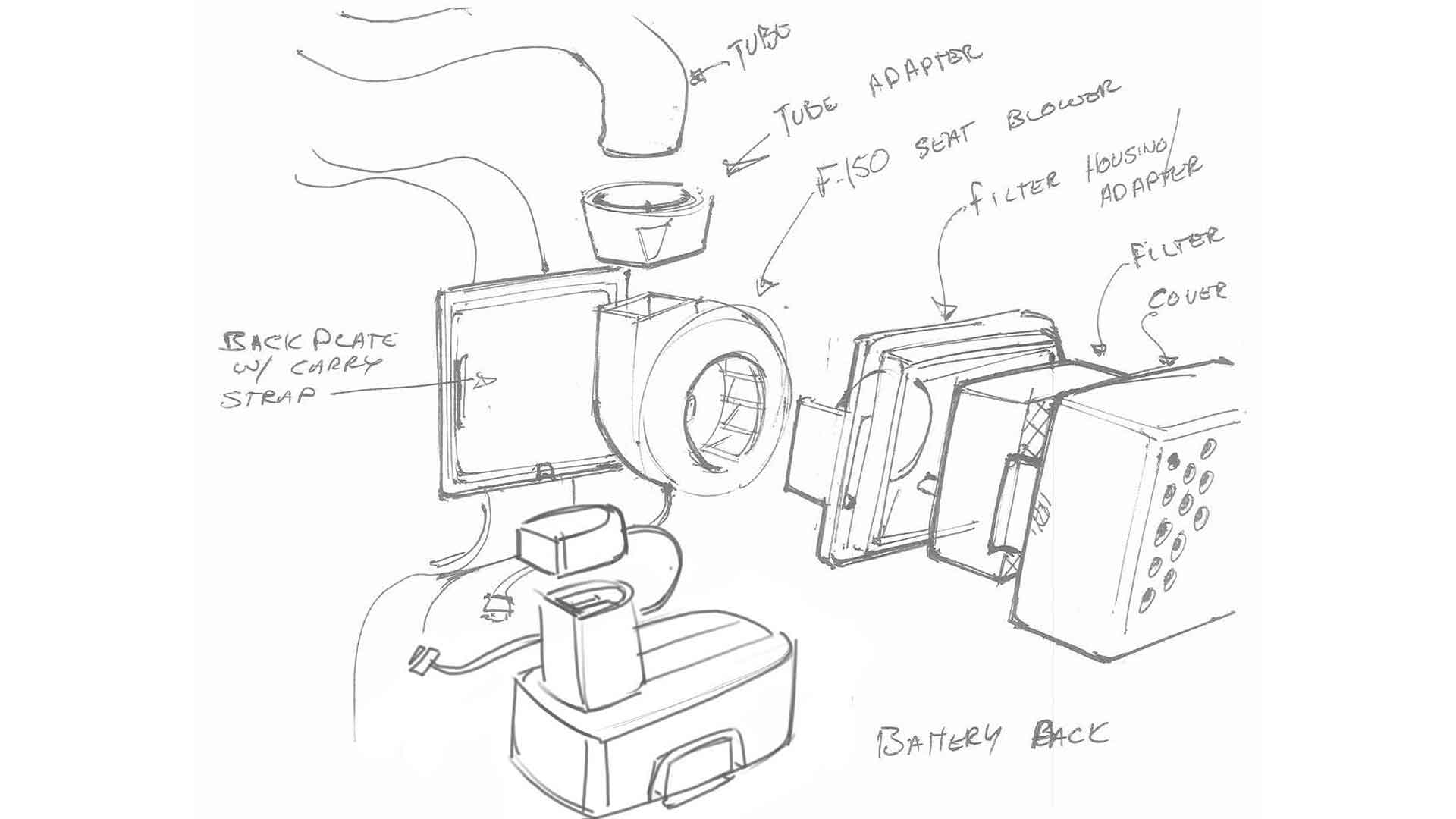
Ford is lending its manufacturing and engineering prowess, and creative ingenuity, to the fight against coronavirus.
It will be helping the expansion of production of various medical supplies, including air-purifying respirators.
Off-the-shelf parts are being repurposed for new designs.
These include the fans usually found in high-end air conditioned ‘cooling’ seats. They’re normally used in Ford F-150 pickups.
Ford is working with 3M, which is suppling HEPA air filters, to develop respirators for healthcare workers.
ALSO READ: McLaren and Nissan join race to build ventilators
“This is such a critical time for America and the world,” said Ford executive chairman Bill Ford.
“By coming together across multiple industries, we can make a real difference for people in need and for those on the front lines of this crisis.
“At Ford, we feel a deep obligation to step up and contribute in times of need, just as we always have through the 117-year history of our company.”
Ventilators, respirators and face shields

Ford is working in other areas of personal protection equipment development and manufacturing, too.
The automaker is collaborating with GE Healthcare to expand production of its ventilator. Ford will potentially be able to manufacture the ventilators at one of its locations. This will supplement supply from the main GE facility.
Ford’s design team is also working on the design and testing of transparent full-face shields for medical workers and first responders.
The first 1,000 are this week going for testing at Detroit Mercy, Henry Ford Health Systems and Detroit Medical Center Sinai-Grace hospitals.
Roughly 75,000 shields could be finished this week. The brand is putting its recent developments in 3D printing capability and technology to the test.
- Coronavirus: MG donates 100 ZS EVs to the NHS

“Working with 3M and GE, we have empowered our teams of engineers and designers to be scrappy and creative to quickly help scale up production of this vital equipment,” said Jim Hackett, Ford’s president and CEO.
“We’ve been in regular dialogue with federal, state and local officials to understand the areas of greatest needs.
“We are focusing our efforts to help increase the supply of respirators, face shields and ventilators that can help assist health care workers, first responders, critical workers as well as those who have been infected by the virus.”
